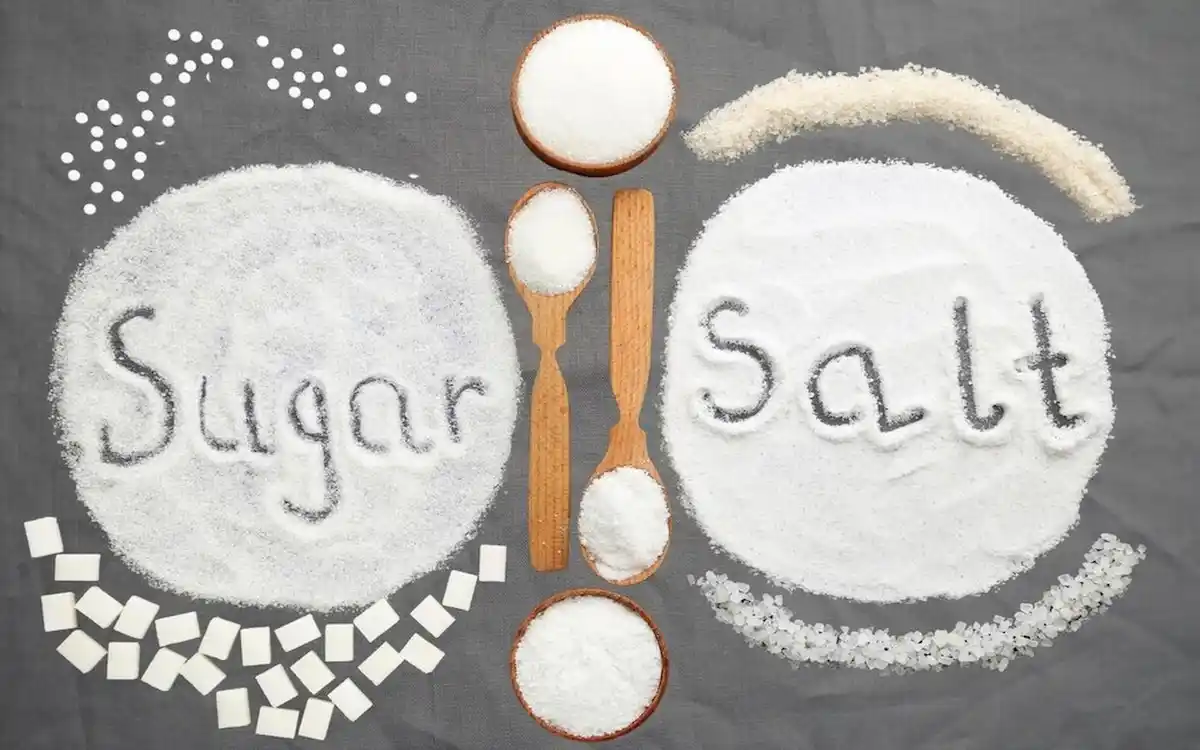Sugar and salt are part of everyday food. They are not “good” or “bad” by themselves. The problem starts when we eat too much, too often.
Understanding The Impact Sugar and Salt Have on Your Body and Life can help you protect your energy, mood, and long-term health. This post breaks down what they do inside your body, how they affect daily life, and simple changes you can start today.
How Sugar Affects Your Body, Energy, and Mood
Sugar gives quick energy, which can feel great at first. But large amounts of added sugar can leave you tired, hungry, and moody soon after. Over time, it can also raise your risk of serious health problems.
If you want a deeper look at how sugar harms the heart and blood vessels, the Harvard Health article on the sweet danger of sugar explains these risks in simple terms.
What Sugar Does Inside Your Body (Blood Sugar and Crashes)
When you eat sugary foods or drinks, your blood sugar rises fast. Your body releases insulin, a hormone that helps move sugar from your blood into your cells for energy.
If you eat a lot of added sugar, your blood sugar can spike, then drop quickly. This “crash” can lead to sleepiness, brain fog, irritability, and hunger again soon after eating. That is why a donut breakfast often leads to a mid-morning slump.
For a helpful overview, Dartmouth Health shares what happens in their guide on what sugar does to your body.
Sugar, Weight Gain, and Long-Term Health Risks
Regular high sugar intake can lead to weight gain, especially around the belly. Your body stores extra sugar as fat when you eat more than you burn. Over time, this raises the risk of type 2 diabetes and heart disease.
Sugary drinks, candy, desserts, sweetened coffee drinks, and many packaged snacks are big sources. Cutting back on these can quickly lower your added sugar without making your diet feel strict.
How Salt Impacts Your Heart, Blood Pressure, and Daily Life
Salt (sodium) helps your body work properly, but most people eat more than they need. Too much salt can quietly affect your blood pressure, heart, and even how puffy or bloated you feel.
You do not taste all the salt you eat, because a lot of it hides in packaged and restaurant foods. That is why learning where it shows up matters.
Related post:
Why Your Body Needs Some Salt (But Not Too Much)
Your body uses salt to control fluid balance, help nerves send signals, and help muscles move. You need some each day.
When you have too much, your body holds on to extra water. This extra fluid can raise blood pressure and make your heart work harder. Over time, high blood pressure can damage blood vessels and raise the risk of heart attack and stroke.
High-Salt Foods and the Risk of High Blood Pressure
Many common foods are loaded with salt. These include fast food meals, chips, canned soups, frozen dinners, instant noodles, and many savory snacks. Processed meats like bacon, sausage, and deli meat often contain a lot of sodium too.
Eating these often can push your blood pressure higher. If that continues for years, your risk of heart disease and stroke goes up, even if you feel fine right now.
Simple Habits to Cut Back on Sugar and Salt Without Feeling Deprived
You do not need a perfect diet to feel better. Small changes add up, especially with sugar and salt. Think of it like turning down the volume instead of unplugging the speaker.
Easy Swaps to Lower Sugar in Your Daily Diet
Try a few simple swaps:
- Replace soda with water, sparkling water, or water flavored with lemon or berries.
- Choose fruit instead of candy when you want something sweet.
- Pick plain yogurt and add your own fruit or a little honey.
- Watch breakfast cereals, and choose lower sugar options or oats.
You do not have to cut all sugar, just reduce added sugar most days.
Tasty Ways to Flavor Food With Less Salt
You can keep flavor strong while using less salt. Some ideas:
- Season with herbs and spices like garlic, onion, basil, oregano, or paprika.
- Use lemon or lime juice to brighten the taste of veggies, chicken, or fish.
- Taste your food before adding extra salt at the table.
- Choose fresh or frozen vegetables and meats instead of very processed options.
Over time, your taste buds adjust, and salty foods can start to taste too strong.
Conclusion
The Impact Sugar and Salt Have on Your Body and Life shows up in your daily energy, mood, weight, blood pressure, and long-term disease risk. The good news is that you do not need a perfect diet, just more awareness and a few better choices most days.
Pick one small change to try this week, like swapping one soda for water or cooking one extra meal at home. Your future self, and your heart, will thank you.

Gas S. is a health writer who covers metabolic health, longevity science, and functional physiology. He breaks down research into clear, usable takeaways for long-term health and recovery. His work focuses on how the body works, progress tracking, and changes you can stick with. Every article is reviewed independently for accuracy and readability.
- Medical Disclaimer: This content is for education only. It doesn’t diagnose, treat, or replace medical care from a licensed professional. Read our full Medical Disclaimer here.


